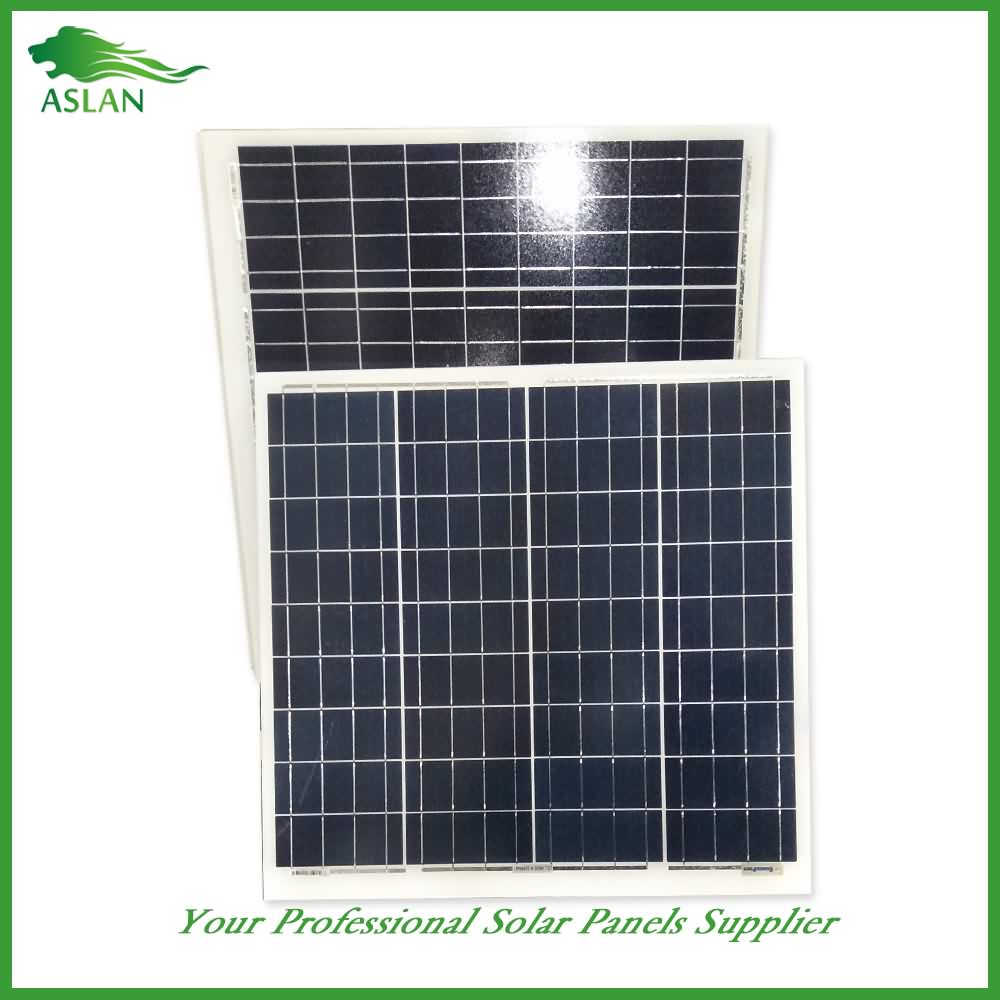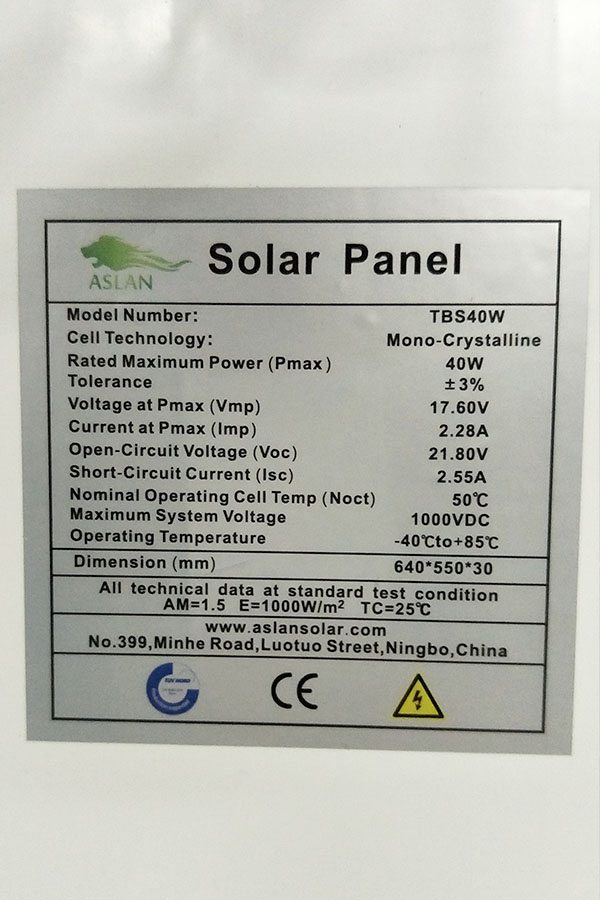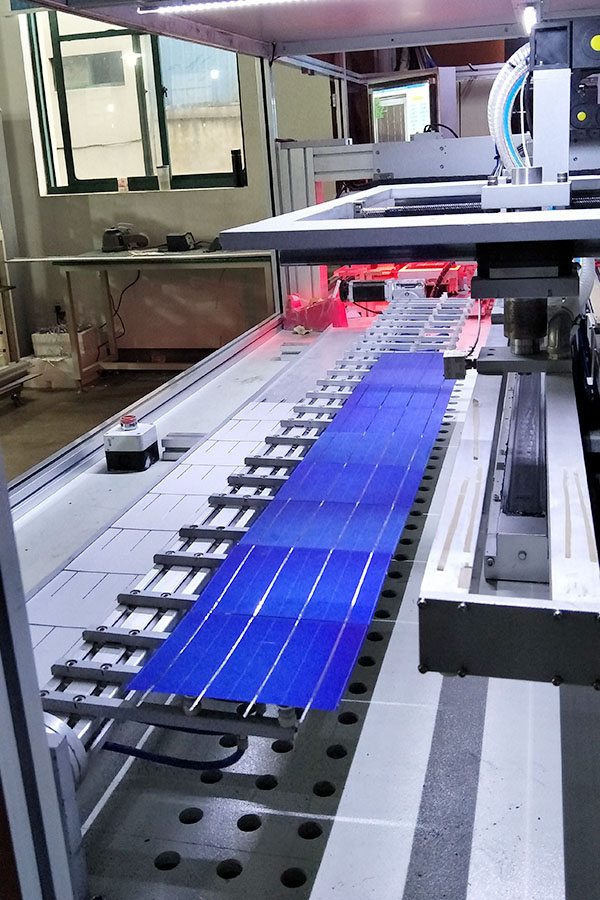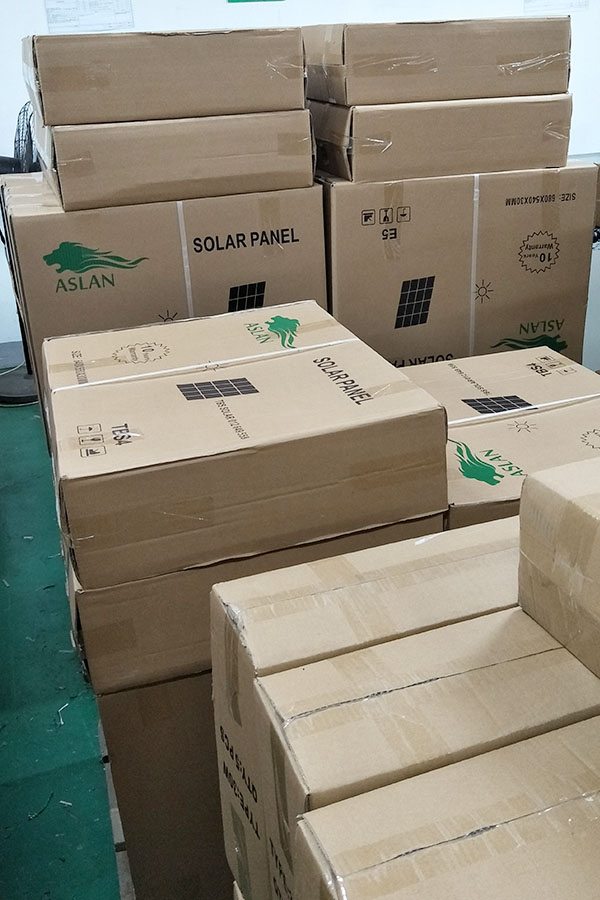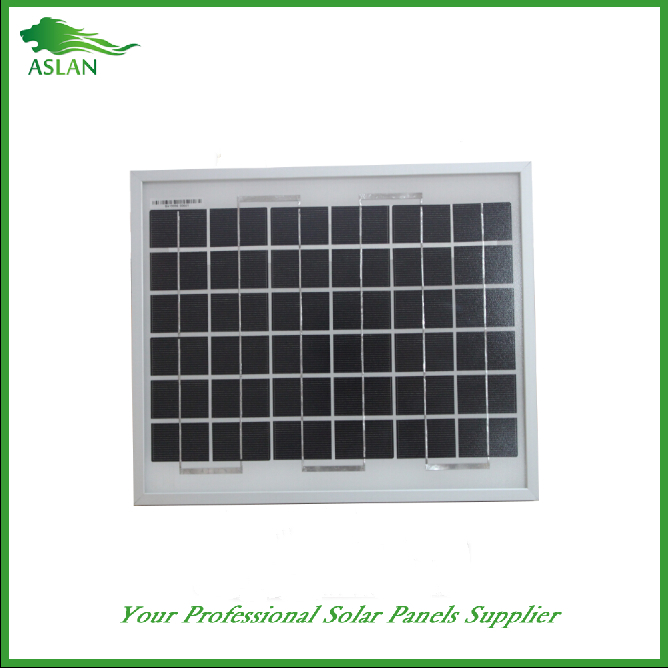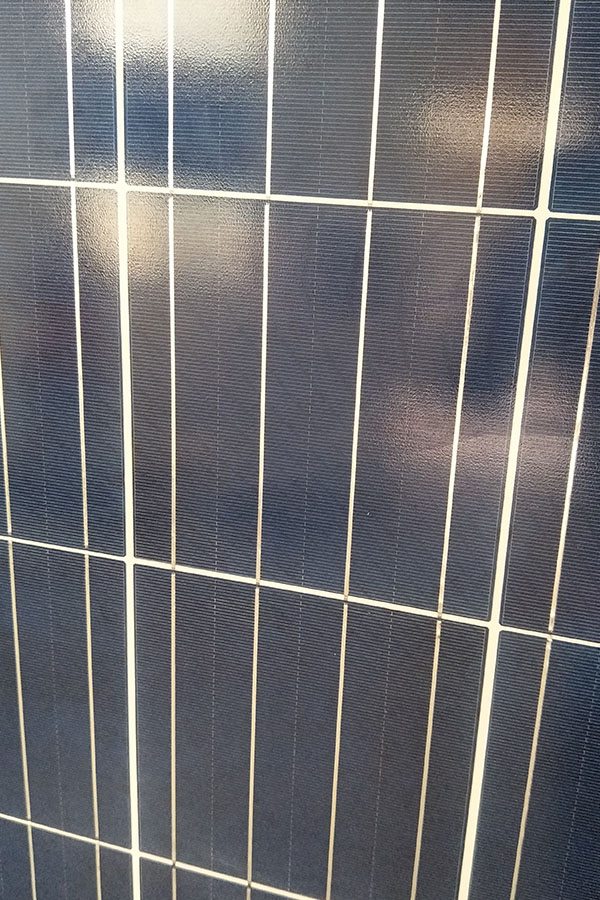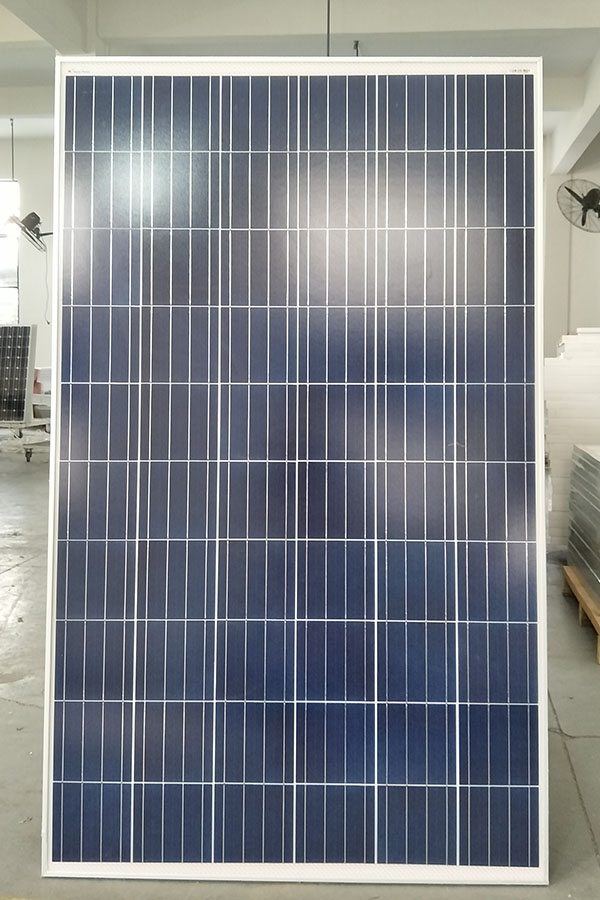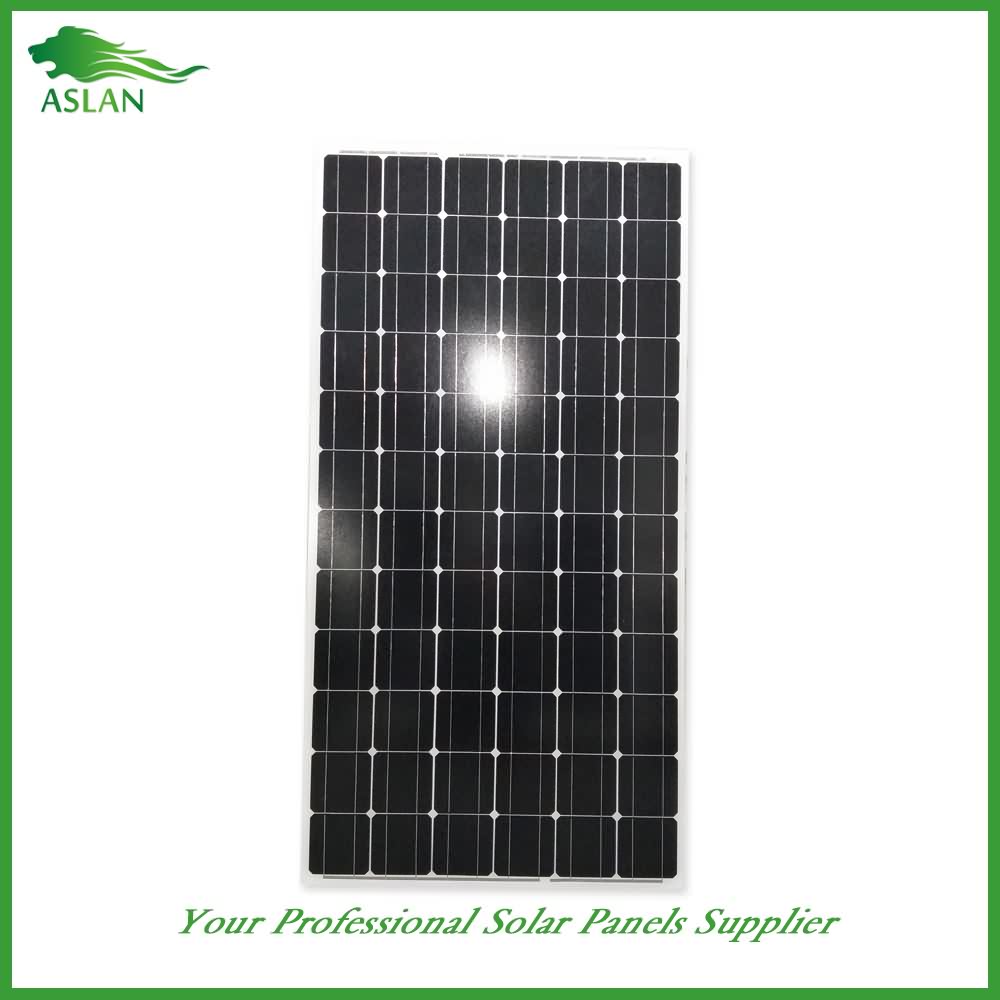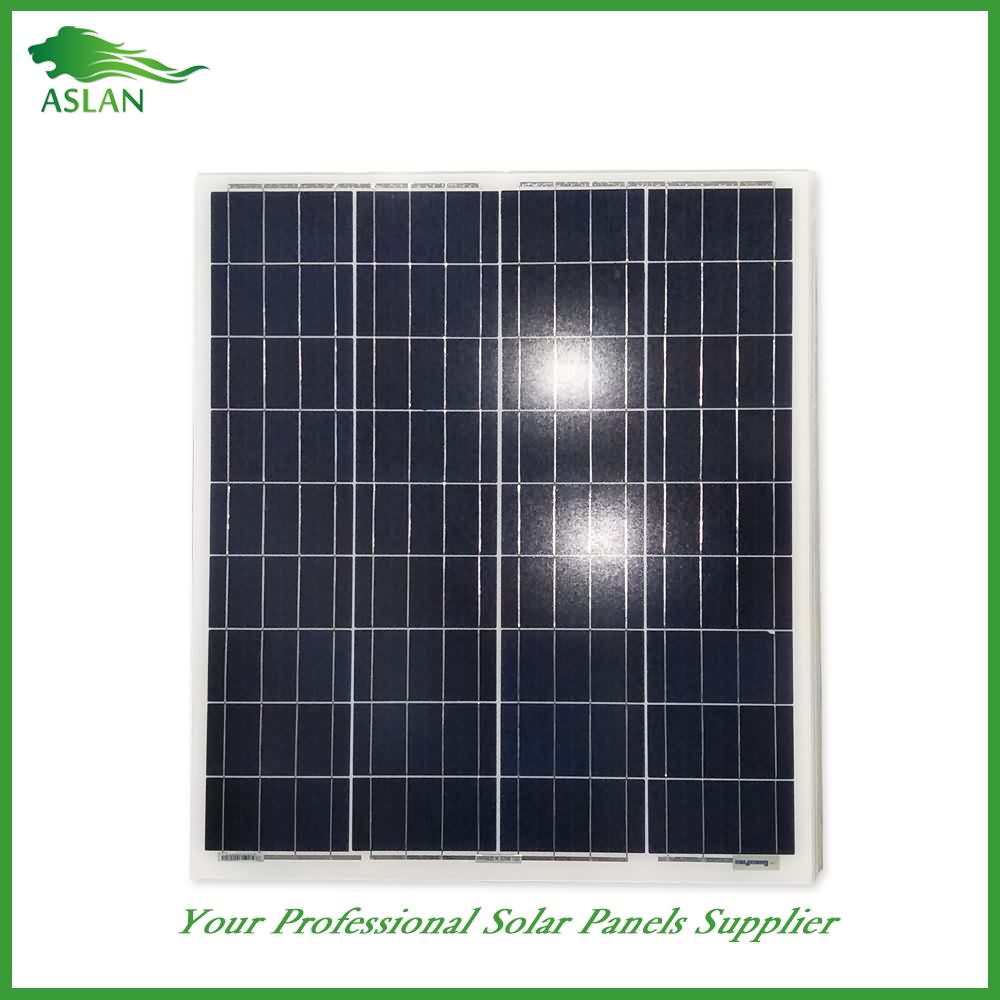OEM/ODM Factory for Poly-crystalline Solar Panel 50W Export to Irish
Short Description:
Our products are widely recognized and trusted by users and can meet continuously changing economic and social needs of OEM/ODM Factory for Poly-crystalline Solar Panel 50W Export to Irish, We warmly welcome you to establish cooperation and create a bright future together with us
Poly-crystalline Solar Panel 50W
Technical parameter
Maximum Power(W) 50W
Optimum Power Voltage(Vmp) 18.43V
Optimum Operating Current(Imp) 2.71A
Open Circuit Voltage(Voc) 22.48V
Short Circuit Current(Isc) 2.98A
Mechanical Characteristics
Cell Type Poly-crystalline 156 x 52mm
No of Cell 36 (4x9pcs)
Dimensions 678x542x25mm
Weight 4.2Kg
Front Glass 3.5mm,High Transmission, Low Iron,Tempered Glass
Junction box IP65 Rated
Output Cable TUV 1×4.0mm2/UL12AWG,Length:900mm
Temperature and Coefficients
Operating Temperature(°C): -40°C ~ + 85°C
Maximum System Voltage: 600V(UL)/1000V(IEC) DC
Maximum Rated Current Series: 15A
Temperature Coefficients of Pmax: -0.47%
Temperature Coefficients of Voc: -0.389%
Temperature Coefficients of Isc: 0.057%
Nominal Operationg Cell Temperature (NOCT): 47+/-2°C
Materials of solar panel
1).Solar Cell——Poly-crystalline solar cell 156*52mm
2).Front Glass——-3.2mm, high transmission, low iron, tempered glass
3).EVA——-excellent anti-aging EVA
4).TPT——-TPT hot seal made of flame resistance
5).Frame——anodized aluminum profile
6).Junction Box——-IP65 rated, high quality, with diode protection
Superiority: high quality anodized aluminum frame, high efficiency long life, easy installation, strong wind resistance, strong hail resistance.
Features
1. High cell efficiency with quality silicon materials for long term output stability
2. Strictly quality control ensure the stability and reliability, totally 23 QC procedures
3. High transmittance low iron tempered glass with enhanced stiffness and impact resistance
4. Both Poly-crystalline and Mono-crystalline
5. Excellent performance in harsh weather
6. Outstanding electrical performance under high temperature and low irradiance
Quality assurance testing
Thermal cycling test
Thermal shock test
Thermal/Freezing and high humidity cycling test
Electrical isolation test
Hail impact test
Mechanical, wind and twist loading test
Salt mist test
Light and water-exposure test
Moist carbon dioxide/sulphur dioxide
Here is an update on how our off grid solar install is running. I have changed the big cables to matrix the batteries to fused cables. I also go through how the system is working, what appliances I have in the house and future plans of installing a PIP as a backup to my solar charge controller and inverter.
We are building a passive solar homestead and planning a big permaculture food forest, mandala veggi garden, swimming pond and much more!
Please visit our blog for more information on our project:
http://canmandala.com
Experiments into the use for a solar panel with impact damage and broken glass.
What a broken panel looks like.
It is possible to use it at a lower voltage depending on where the damage is. See part 2 for current tests.
